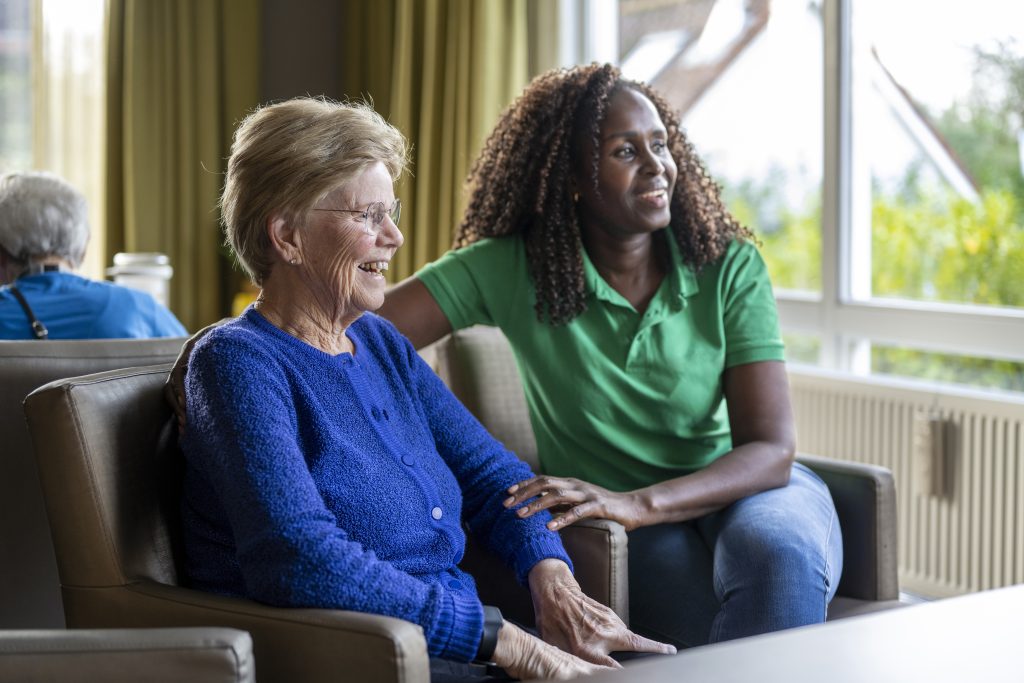As your loved one ages, small changes can raise big questions about whether it’s time to bring in help at home. You notice they’re forgetting meals. The house isn’t as tidy. They seem more tired, more withdrawn, or not quite themselves. But is it just aging—or is it time to bring in help at home?
Deciding when to explore home care services in Illinois isn’t easy. It’s emotional. It’s personal. And it’s often filled with guilt, confusion, and hesitation. But here’s the truth: asking for help is not a sign of giving up—it’s a step toward safety, comfort, and dignity. In fact, timely support can prevent accidents, reduce hospital visits, and preserve independence longer than going it alone.
Here are some of the clearest signs that your loved one may benefit from professional in-home care services, and how bringing in the right kind of help can improve life for both seniors and their families.
Daily Routines Are Becoming Difficult
If your loved one is suddenly struggling to get dressed, take showers, or remember medication, it’s more than just forgetfulness—it’s a warning sign. The basic activities of daily living (also called ADLs) become harder with age, arthritis, or cognitive decline. Often, these changes are subtle at first but grow over time. What used to be simple—like brushing teeth or changing clothes—may now require more time, effort, or assistance.
Personal care assistance provides gentle, respectful support with dressing, grooming, bathing, and more. It allows seniors to maintain their hygiene and routines without feeling embarrassed or helpless. Trained caregivers can step in to provide just enough support while still empowering seniors to do what they can on their own. For family members, it brings peace of mind knowing someone reliable is there to help each day.
They’re Skipping Meals or Eating Poorly
Nutrition directly affects energy, memory, and mood. If your loved one is skipping meals, forgetting to eat, or relying on frozen dinners and snacks, their health may be at risk. Whether it’s due to fatigue, depression, or difficulty cooking, poor nutrition is a red flag that shouldn’t be ignored. Sometimes, a lack of motivation or mild confusion is all it takes for meals to be skipped altogether.
Meal planning services and nutrition support services help ensure seniors are eating balanced, nourishing meals. Caregivers can prep ingredients, plan menus, assist with grocery shopping, and even cook alongside your loved one. Mealtime becomes something they can look forward to—not just a task to check off. And when the food is warm, familiar, and made with care, it feeds both body and spirit.
Medications Are Being Missed or Mismanaged
Has a pillbox gone untouched? Are prescriptions piling up or being refilled late? Seniors often juggle multiple medications, and even one missed dose can cause serious health issues. Managing medications requires mental sharpness, routine, and sometimes visual clarity—all of which can decline with age.
Medication reminders for the elderly can be life-saving. While caregivers don’t administer medicine, they ensure it’s taken on schedule and as directed. Their presence adds structure, prevents mistakes, and helps catch early warning signs of confusion or side effects. This small task has a big impact on safety and long-term wellness.
They’ve Become More Isolated or Withdrawn
Social connection is a fundamental human need, yet many seniors become isolated due to mobility issues, hearing loss, or the passing of a spouse. If your loved one is no longer engaging in conversations, hobbies, or outings, emotional decline often follows. Days may blend together in silence, and loneliness becomes a constant companion.
Companion care services offer consistent, friendly interaction. From meaningful conversation to shared walks, card games, or reminiscing, a companion caregiver becomes a steady and uplifting presence. Companionship helps restore purpose to the day and encourages seniors to stay mentally and emotionally active. It’s more than conversation—it’s connection.
They’re Struggling Emotionally—But Don’t Say It Out Loud
Older adults are often reluctant to talk about emotional challenges. They may not say “I feel lonely,” but you can hear it in their silence. You see it in the lost sparkle, in the empty chair by the window, they sit in for hours. These emotional changes are easy to overlook but important to address.
Emotional support services provide a safe outlet for feelings that may be difficult to share with family. Caregivers are trained to recognize emotional distress and provide warmth, empathy, and meaningful companionship. They help seniors feel heard, valued, and connected again. When someone feels emotionally seen, their whole outlook shifts.
The Phone Is Quiet—but You’re Still Worried
Sometimes your loved one says they’re “fine” when you check in—but deep down, you know something feels off. You wish you could call more often, or that someone else could just check in during the day. Unfortunately, busy schedules and distance often make that hard to do consistently.
That’s where telephone reassurance for seniors becomes incredibly helpful. A simple daily call from a caregiver can provide safety checks, medication prompts, or even just a friendly voice. It helps catch subtle changes in mood, memory, or behavior before they become serious. For many families, this small act offers big relief and reassurance.
The House Isn’t Being Maintained Like It Used To
Is the laundry piling up? Are dishes staying in the sink for days? A once-spotless home might now feel cluttered, dusty, or unsafe to move around in. These physical signs often indicate that your loved one is struggling more than they let on.
Light housekeeping services for seniors ensure the environment stays clean and safe—without seniors having to push themselves. Caregivers can help with vacuuming, tidying, organizing, and basic chores so the home remains a source of comfort instead of stress or danger. When the environment feels fresh, seniors feel more energized and in control. A clean space really does lift the mood.
They Need Help at Home That Goes Beyond Care—They Need Convenience
As seniors age, even tasks like booking appointments, shopping for personal items, or coordinating transportation can become overwhelming. And for families, managing those small tasks often becomes a full-time job. That’s where personalized services can be a game-changer.
Concierge service brings back convenience without sacrificing independence. From handling errands to managing everyday logistics, this added layer of support brings simplicity and ease back into daily living.
How Ace Home Care Makes the Transition Seamless
At Ace Home Care, we understand the hesitation that comes with bringing someone new into your home. That’s why we offer personalized, compassionate senior home care services in Illinois that are built around trust, consistency, and respect. From in-home care services to personalized companion care, our team is trained to support seniors physically and emotionally.
We take time to match caregivers with your loved one’s personality and needs. Whether they need help with meals, medication, or simply someone to talk to, we’re here to make each day a little easier and more joyful. Because to us, care is more than a task—it’s a relationship.
Start the Conversation Today
There’s never a perfect time to ask for help—but there is a right time. That time is when small concerns become patterns, when your loved one’s quality of life begins to slip, or when you feel overwhelmed. Waiting for a crisis makes the decision harder. Acting early gives everyone time to adjust, plan, and feel empowered.
Call Ace Home Care today to schedule a free consultation and find out how our team can bring comfort, safety, and peace of mind to your family’s everyday life.



